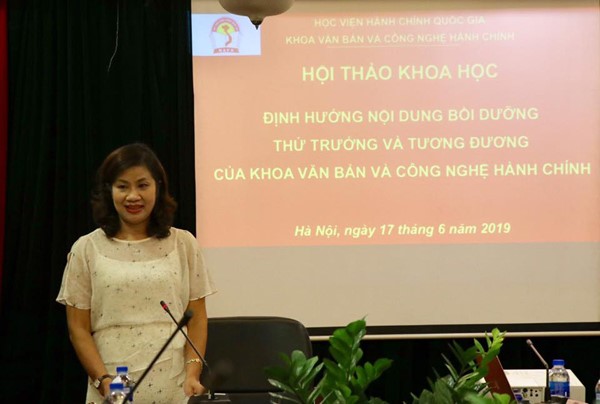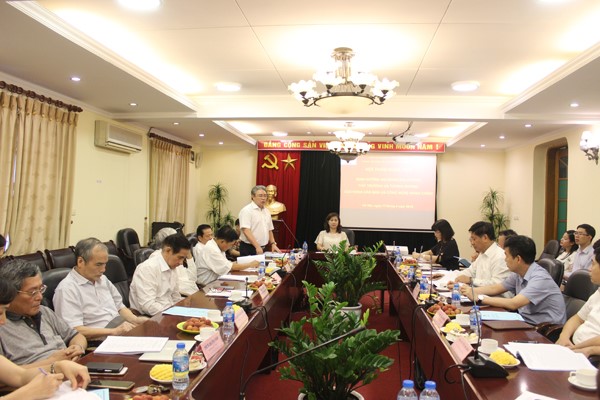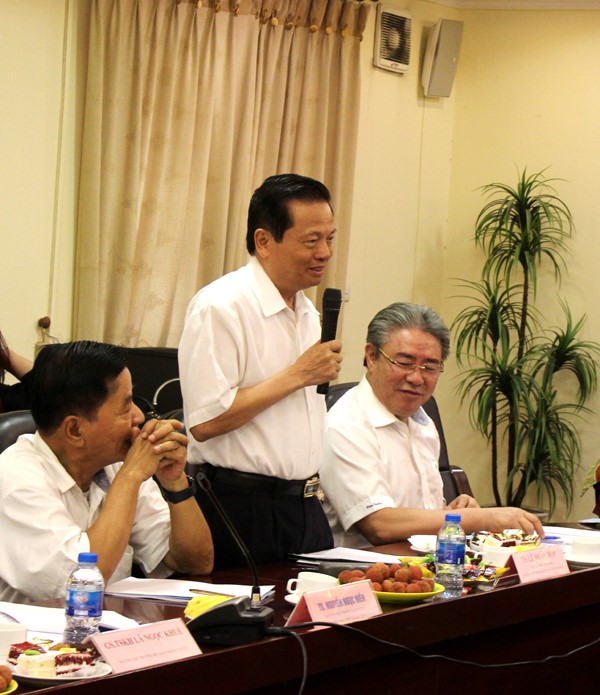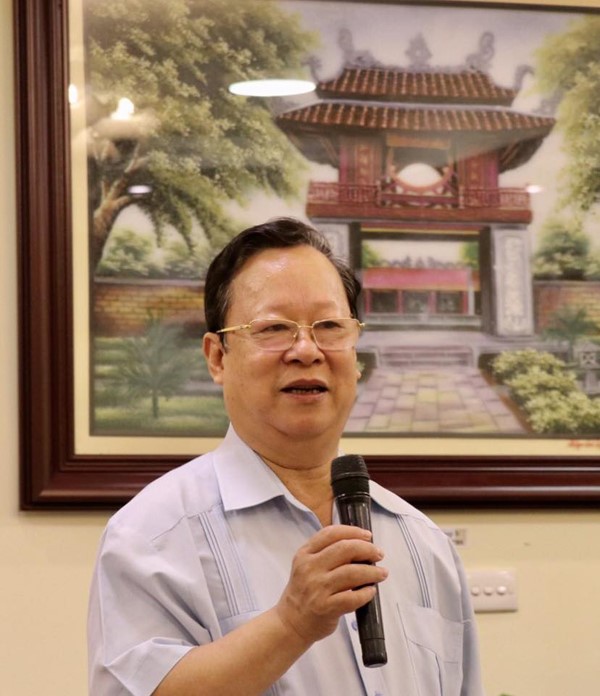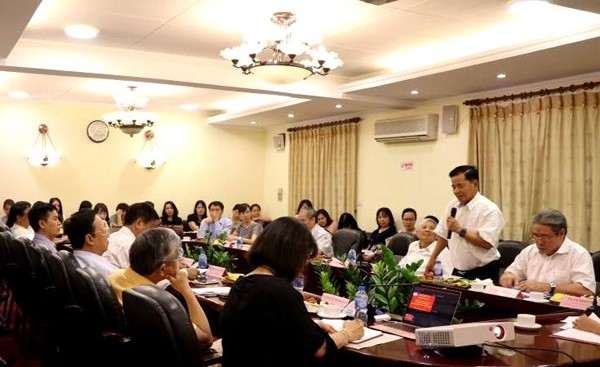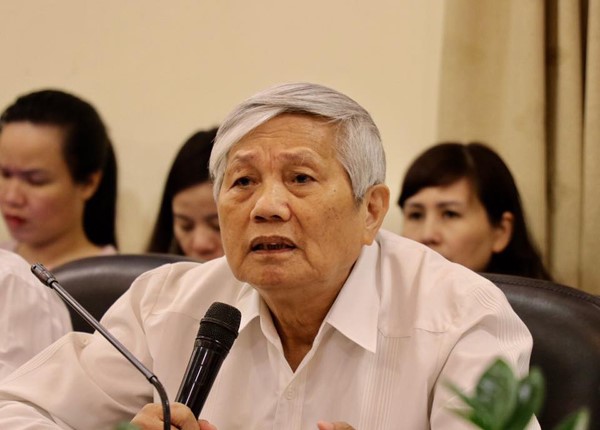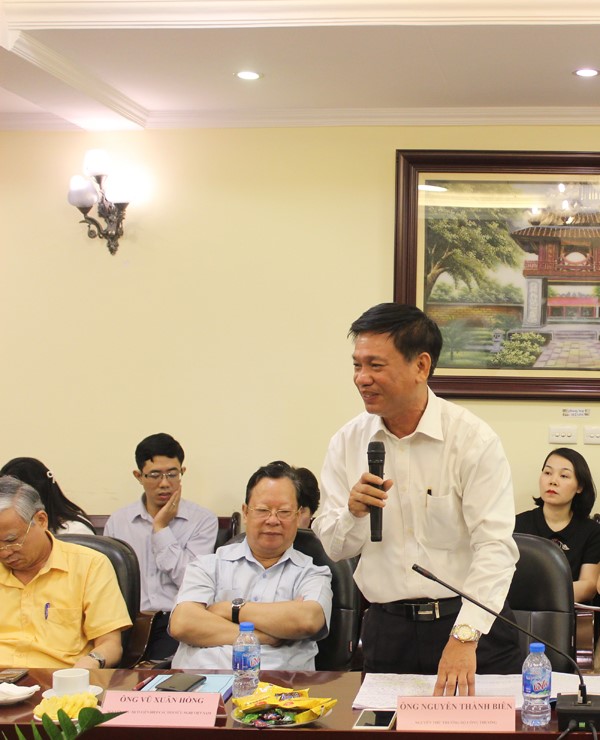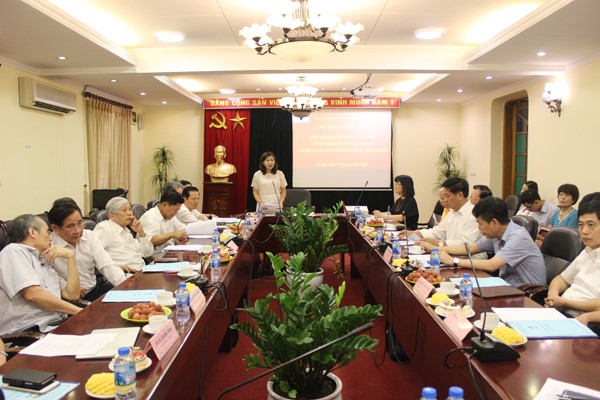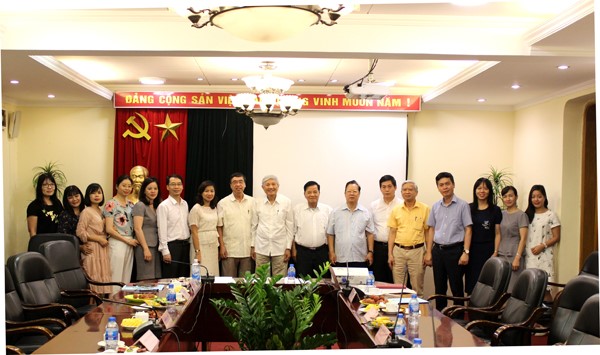On June 17th, 2019, Faculty of Administrative Technology and Documents, NAPA organized the Seminar “Content orientation in training vice ministers and equivalents”.
Attending the seminar were Dr. Le Doan Hop, former Minister of Culture and Information, former Minister of Information and Communications, former Chairman of Vietnam Digital Communication Association; Mr. Vu Xuan Hong, former Chairman of Vietnam Union of Friendship Organizations, delegate of the 10th, 11th, 12th, 13th National Assembly; Dr. Nguyen Ngoc Hien, former Vice Minister of Justice, former Vice Minister of Home Affairs (MOHA), former NAPA President, Chairman of Vietnam Association of Administrative Science; Assoc. Prof. Dr. Van Tat Thu, former MOHA Vice; Mr. Nguyen Phu Binh, former Vice Minister of Foreign Affairs, former Vietnamese Ambassador to South Korea and Japan; Prof. Dr. La Ngoc Khue, Vice Minister of Transport, former Chairman of Science and Technology Council of Ministry of Transport; Mr. Nguyen Thanh Bien, former Vice Minister of Industry and Trade; Prof. Dr. Pham Hong Thai, former Dean of Law, Hanoi National University; Mr. Dang Thanh Tung, Director of State Records Management and Archives Department, MOHA; Dr. Nguyen Thanh Phuc, Director of Department of Computerization, Ministry of Information and Communications.
Presented at the seminar were, from NAPA: Dr. Dang Xuan Hoan, NAPA President; Dr. Vu Thanh Xuan, NAPA Vice President; Assoc.Prof. Dr. Luong Thanh Cuong, NAPA Vice President, Prof. Dr. Nguyen Huu Khien, former NAPA Vice President; Assoc.Prof. Dr. Luu Kiem Thanh, former NAPA Vice President; Assoc.Prof. Dr. Nguyen Thi Thu Van, Dean of Faculty of Administrative Technology and Documents; and NAPA lecturers.
In the opening speech, Assoc.Prof.Dr. Nguyen Thi Thu Van emphasized the significance of the content development for training vice ministers and equivalents, preparing strategic level officials of the Party and State in the coming years, meeting the country’s socio-economic development requirements in the context of improvement of the democratic, socialist rule-of-law state, accelaration of the public administrative reform, civil service and civil servant reforms, e-Government. Assoc. Prof. Nguyen Thi Thu Van expected seminar participants to contribute valuable ideas and inputs for development of the content of the training program for Vice Ministers and equivalents.
Speaking at the seminar, Dr. Dang Xuan Hoan, NAPA President stated NAPA is assigned by MOHA to train vice ministers and equivalents in accordannce with the Government Decree 101/2017 / ND-CP dated September 1, 2017 on training public officials. The training of vice ministers and equivallents should not overlap in content with other state management training and strategic level official training delivered by Ho Chi Minh National Academy of Politics.
Followings are key points of discussion:
Firstly, significance of the training of vice ministers and equivallents. Dr Le Doan Hop, former Minister of Infomration and Communication stated the long absense of the vice minister training. According to Assoc. Prof. Luu Kiem Thanh all civil servants regardless of their ranks must take part in training to improve their capacity.
Target of training: All civil servants who are currently vice ministers, holding equivallent positions must take the training. Those who are planned to be promoted to the vice minister positions must take the training before appointment. It is necessary to group vice ministers into domains based on which the training content is developed.
Thirdly, training content: There were different ideas on the training content. Vice ministers should be trained on public ethics, information application, political stance. According to Mr. Vu Xuan Hong, former Chairman of Union of Friendship Organizations, vice ministers should be also trained on external relations in the world, political situations, external economic relations, external cultural relations, relations between Vietnam and other countries. Dr. Nguyen Ngoc Hien, former Vice Minister of Justice, former MOHA Vice Minister, former NAPA President suggested the training should include a compulsory component on administrative system, policy making, meeting with citizens, meeting skills. Mr Nguyen Phu Binh, former Vice Minister of Foreign Affairs emphasized the topics to be included in the training such as dealing with situations, communication skills, negotiation, press conference, leadership style.
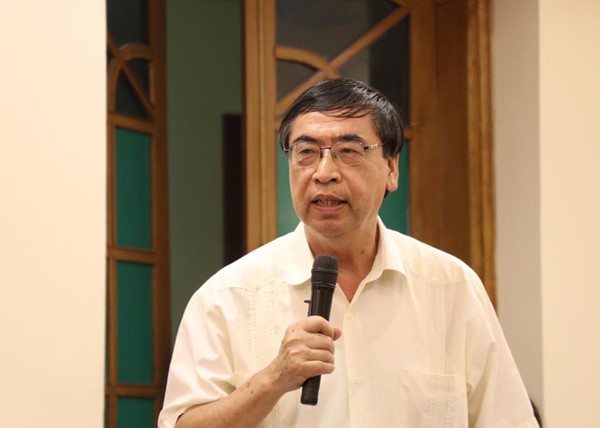
Mr. Nguyen Phu Binh, former Vice Minister of Foreign Affairs
Prof.Dr. La Ngoc Khue, former Vice Minister of Transport emphasized public ethics training, sharing experience and lessons learnt in the training of vice ministers. Some seminar participants suggested other training issues including art of leadership and management; public governance; international best practices; skills in forecasting trends of their sector in the world, sustainable development, policy advocating, IT, coordination, negotiation, public speaking, communication with media; e-government, digital government and digital economy; administrative technology. According to Assoc.Prof.Dr. Luu Kiem Thanh, former NAPA Vice President, the training content should be based on good combination of learners’ needs and the Government’s requirements and regulations on the standard of the vice minister position.
Fourthly, training methods: Training should be delivered to different target groups of vice ministers, practice-oriented, and skill-based. The training should facilitate self-study and critical thinking while learning..
Fifthly, training organization, training time and duration, trainers: Mr. Nguyen Thanh Bien, former Vice Minister of Industry and Trade suggested that the training should include both intensive and non-intensive components, both classroom lectures and e-learning.
According to Prof.Dr. Nguyen Huu Khien, former NAPA President, the training should be no longer than two weeks; trainers should have working experience as a vice minister or equivallent or higher position (e.g. ministers, heads of the Party’s committees) and act as a facilitator to promote interaction between trainees. Other suggestions mentioned the training components such as field trips, onlines courses; criteria of trainers; training assessment through solving management situations by trainees; following-up refresher courses two or three years after the training completion.


